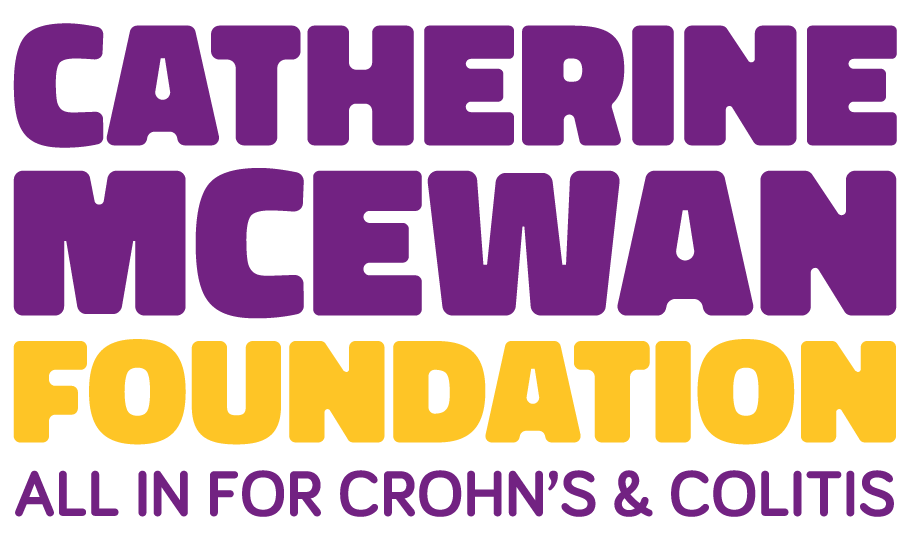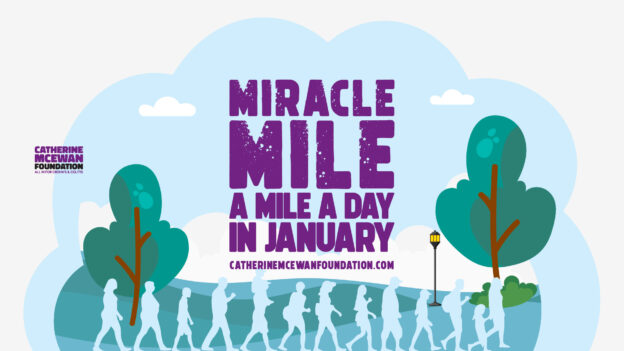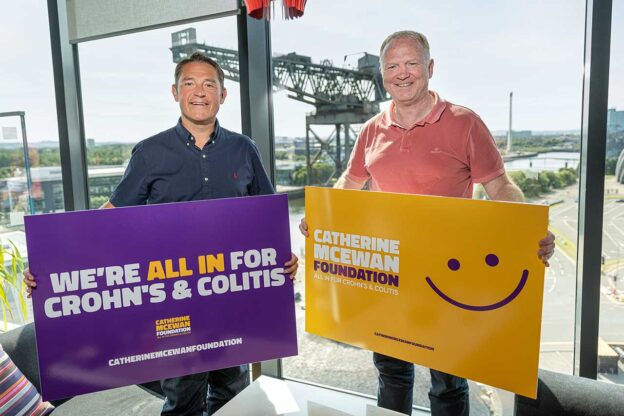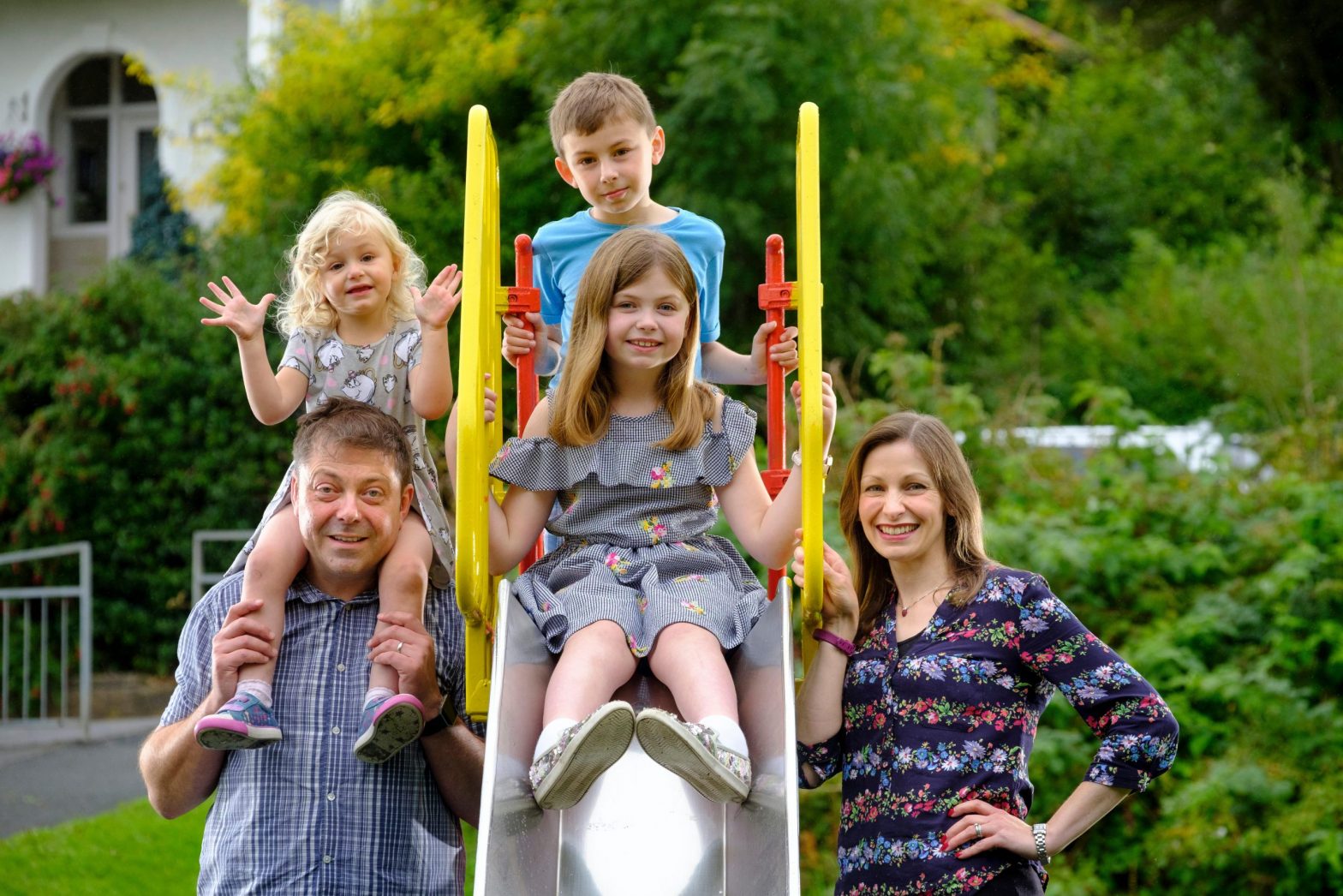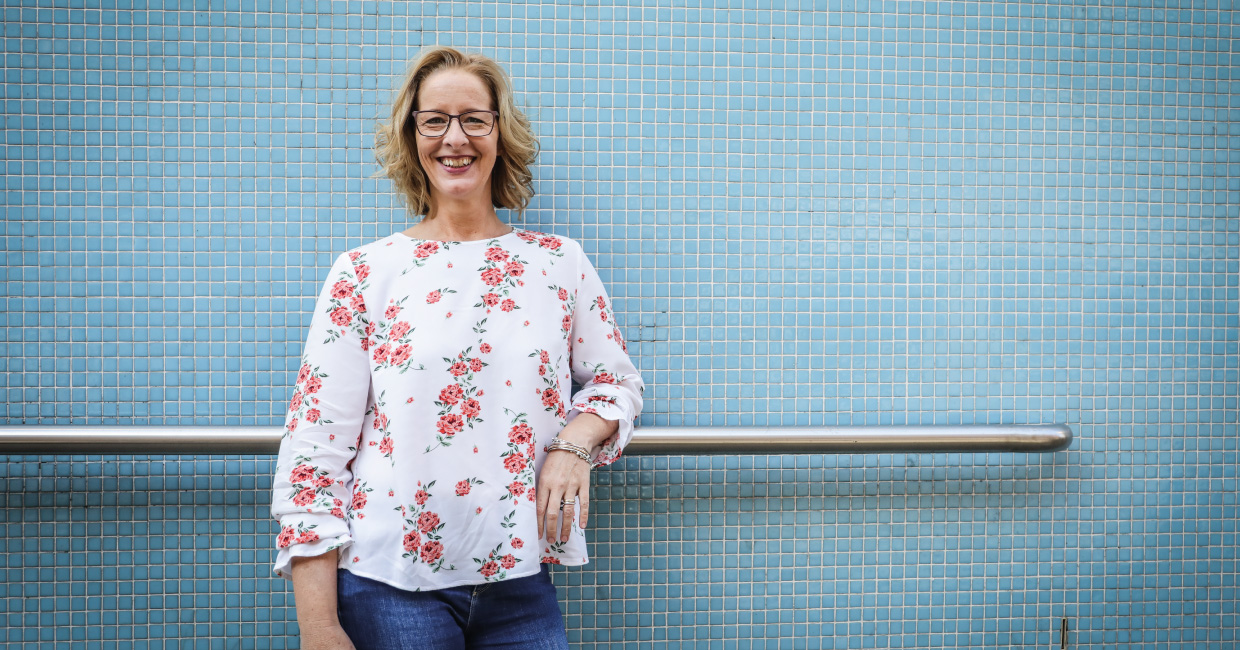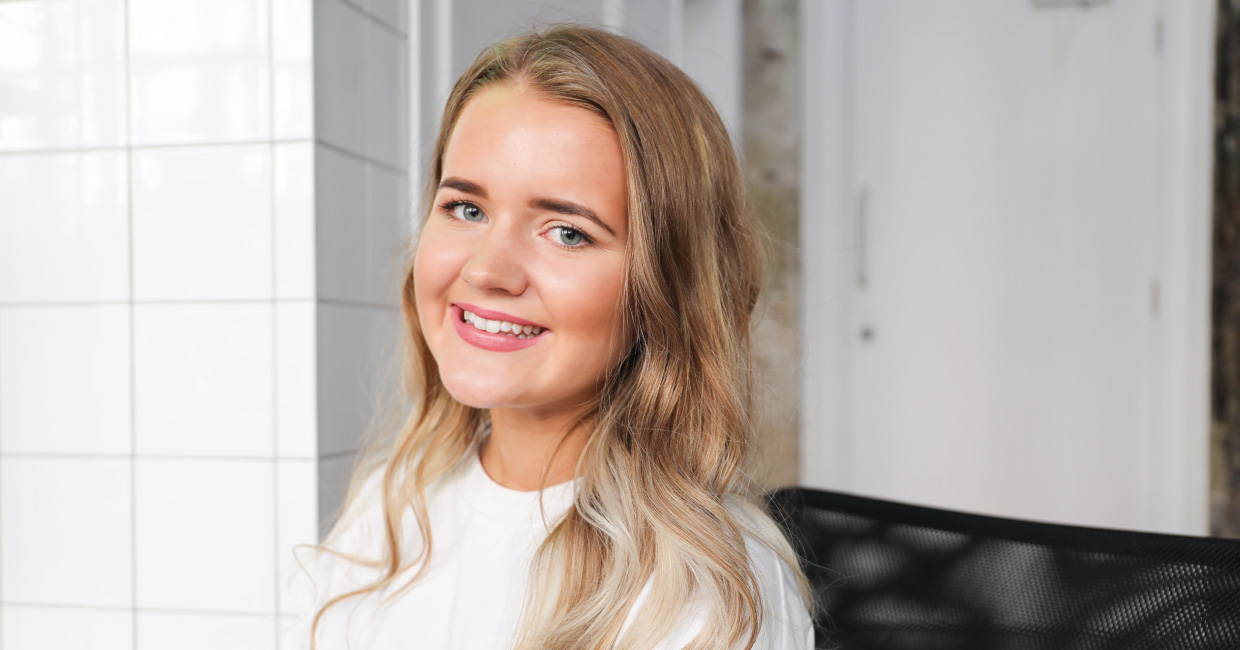My name is Laura Simpson. I am married to Fraser and we have been blessed with three amazing children, Millie, who is 12, Harris, 9 and Ella, 5. It is our Millie who brings us here. Up until Millie’s diagnosis in January 2017, Fraser and I thoroughly enjoyed being ‘normal’ – working hard, living for the weekend, getting stressed on the school run and over the demands of primary school long division, and falling asleep on the sofa by 9pm on a Friday night. If anyone had asked, we would probably have admitted that since Millie was a baby we’d always been just a bit worried about what we considered ‘toilet issues’ – she simply didn’t like going and seemed to take ages – but this was our norm. Subconsciously, we accepted we always needed to know where toilets were and we needed to be near them. But, we truly believed this was just Millie and that she would absolutely ‘grow out of it’.
In October 2016, I took Millie to our GP as she just wasn’t right. That was the best way to explain it. She was pale, tired, quite emotional and was beginning to look a little thin. Her little feet were also absolutely freezing – as my own often are – and this led the GP to consider her circulation and perhaps wonder if Millie might have Rheumatoid Arthritis. I was shocked, and thought this rather dramatic, but by December – a mere 6 weeks later – Millie was only three stone and every rib was visible through her papery skin so I was more than happy to agree with the doctor that she should be referred to the Children’s Hospital.
The appointment came on the 29th December and we had crawled to get to it. We had struggled through Christmas, painfully acknowledging that Millie literally couldn’t stomach her favourite turkey dinner, and that she really was not interested in the enticing presents under the tree. She was also losing great strands of hair at an alarming rate. This was not our bubbly, bright, bouncy little girl at all, and for the first time, Fraser and I experienced the pain of being utterly helpless. Unfortunately, this is a feeling that we now experience regularly. The rheumatologist we met at the hospital was lovely. I, still in denial, was convinced we were probably wasting her time, but she immediately asked us about Millie’s stomach and bowel. For the first time, the possibility of Crohn’s Disease was mentioned. But, this was more than a possibility; the consultant was 99% sure.
We were utterly naïve about what this actually meant; what we did know was that this was not a good thing.
We had to provide stool samples that day and these would be combined with the extensive blood samples already taken by our own GP during the previous two months.
We dragged ourselves through the welcoming of the New Year. It seemed absurd even attempting to raise a glass to 2017 when we’d inevitably and foolishly Googled Crohn’s and all it could possibly mean. On the 6th January I was sitting outside the school gate at 8.45am, preparing to take Harris into school whilst Millie was still too unwell to even think about attending, when I received a phone call from the gastro registrar. She’d looked at Millie’s tests and asked if we would come into the Children’s Hospital in the next hour and a half. My blood ran cold. During the 8-day stretch between our referral appointment and this call, I’d been unable to shake the realisation that yes, Millie did have Crohn’s; whilst Fraser, always buoyant, was determined that there had been a mistake. There was still hope. An hour and a half later, hope disappeared. I had been right; I had never wanted to be wrong more. Once again, I felt utterly powerless. Powerless, hopeless and full of guilt. Here was my first born, my perfect little girl, with a chronic condition which would promise nothing but pain, upset and grief. There was no cure. And there was nothing I could do to change this.
Six days later, Millie was admitted to the Children’s Hospital, and under general anaesthetic she had a colonoscopy, an endoscopy and was fitted with a nasal feeding tube so that we could give her Modulen for the next eight weeks. Millie awoke from the surgery panic-stricken; we were grief-stricken. It was confirmed that her Crohn’s was severe – she had inflammation and ulcers running from mouth to anus, strictures and her bowel was slightly narrowed down the left-hand side, accounting for the pain she often felt there. We were utterly horrified. We had known; but now we couldn’t deny it. We were even shown photographic proof.
Millie did not speak after the procedures for three days. We later learned that becoming mute is often a defence mechanism adopted by children who are desperately searching for some control over everything that is happening to them. Fraser and I were still desperately searching for our vivacious little 8 year old, who seemed to have disappeared.
The first weekend back home from the hospital was horrendous. No one wanted to eat in front of the now silent Millie. We were all terrified her tube would be pulled out. Fraser and I struggled to adjust to the Modulen feeds and administering them to Millie who was understandably nervous, angry and confused. The first night we had to make up the next day’s feeds ourselves, our kitchen looked like a horror-film version of Masterchef – there were bottles, jugs, scoops and whisks everywhere and we had to wait painful ages for our 2 litres of boiled water to cool. Just as we were nearing the end of the laborious whisking our food mixer blade broke into the Modulen, ruining the whole lot and we realised – at quarter to midnight – that we’d have to start all over again. I burst into hysterical laughter, closely followed by hysterical tears. How could this possibly be happening? Surely it was a cruel joke, in the worst possible taste, posed by fate? It was just the beginning of our journey.
During the next 8 weeks I became fiercely protective of Millie. It was one of the only ways I could cope. It literally felt like there was a huge burden surrounding me and life had finally been exposed as something that could let you down and take away joy within an instant. I struggled to force myself out of bed each morning – reality was just so difficult to face. But I knew I had to. I had to for Millie. And for Harris and Ella and Fraser. I felt like I had failed to prevent this happening to Millie, therefore I would do absolutely everything in my power to make this more bearable for her. We would take one feed at a time. One day at a time. One week at a time. And eventually, we would make it to eight weeks.
We met our IBD nurses, Vikki, Lee and Lisa, who were immediately warm, welcoming and understanding. However, at our first meeting – exactly one week after Millie had had her tube fitted – they announced that she must return to school as quickly as possible. We were shocked. This just couldn’t happen. We were traumatised, still adjusting. We didn’t want the world to see us and we certainly didn’t want to venture into it. However, they were right. We liaised closely with the staff at the school, who throughout everything were amazing, and within a week, Millie had managed to go in for an hour on a Friday afternoon. She loved it. She glowed. She’d had a snapshot of a return to normal, and she wanted more. Gradually, I began to integrate Millie more and more and I could see her visibly grow in strength, both physically and emotionally. As her days at school became longer, I would go in at intervals and lunchtimes to tube feed her, the office staff or Millie’s friends obligingly watching ‘Peppa Pig’ with Ella to keep her entertained.
Eventually, we reached the end of our 8 weeks and the feeding tube was removed. Incredibly, accompanied by Lee’s phone instructions, Millie did this herself, gently pulling the tube out and triumphantly holding it in her little hand and beaming afterwards. At last, I recognised our brave little soldier; a far cry from the terrified little skeleton who in December wept hysterically at the sight of a needle.
Millie had to start taking immunosuppressants, Azathioprine, daily which she’ll always have to do. We all hoped that this would be it, as it was a pretty difficult task trying to teach an 8 year old to swallow tablets daily (now, of course, she’s a pro!). However, Millie’s health began to deteriorate around Easter time again, just a few weeks after coming off Modulen. In May, she had to begin Infliximab infusions, and once again, we found ourselves drowning in literature and sometimes what felt like too much information.
Millie had Infliximab infusions every 8 weeks for 14 months before she reacted badly to an infusion mid-treatment and we had to stop immediately. It felt like yet another hurdle and yet another injustice but the IBD team reassured us there was another option – a mere 10 years beforehand this would not have been the case and it once again made me realise how crucial research is and how much the lives of our children depend on it . Millie would now be given weekly Adalimumab injections. Initially this was done at the Children’s Hospital but soon we decided it would be better for everyone if I could be trained to administer the injections at home. This was nerve-racking and Millie’s fear was tangible, but we managed and now, 2 years on, injections are part of our Friday evening routine. Sometimes it’s hard to gauge whether my hopes are just too high, or if there really is more that can be done. We have days where she struggles to leave the house; days where she’s absolutely exhausted; days where she’s weepy and angry – and often I reflect this too. For the past 18 months Millie has been seeing one of the child psychologists at the Children’s Hospital and this has really helped her to discuss her feelings surrounding having Crohn’s and to try to work out strategies to help her deal with all the things she has to deal with on a daily basis that many people would struggle to imagine. Of course, we’re also blessed with days where we can almost forget that Millie has Crohn’s and everything feels pretty normal. On days like that, Millie is bouncy and buoyant once more, we struggle to get a word in edgeways and she comes out with amazing one-liners like when she told her nurse, Lee, that she loves the hospital as it’s just ‘a home from home’!
It’s almost impossible to articulate just how proud we are of Millie. She has borne everything with such strength, courage and resilience and she is utterly amazing! In Primary 7 she managed to take part in her residential school trip to Lockerbie outdoor centre and she met every challenge head on and was even the only pupil brave enough to try abseiling. She has recently started secondary school and although she was extremely nervous and sometimes overwhelmed by the thought of this, she has embraced the new opportunities being presented to her and is coping really well with this transition. This whole situation has served to remind us of just how blessed we are to have each other, our wonderful families and some amazing friends – we really would not have managed without them.
We cannot deny that we wish, more than anything, that things were different. We would do anything for Millie not to have Crohn’s. Actually, we would do anything for Crohn’s not to exist at all. But it does. We hope and pray that the research catches up and that one incredible day a cure will be found. Until then, we will continue to take one day at a time. We will face each bad day as it comes, each hurdle as it has to be jumped. We have no choice but to keep trying, and to keep smiling. One day at a time.
Fraser and I are absolutely delighted to be a part of the Catherine McEwan Foundation Parent Support Group and are looking forward to meeting other parents directly affected by IBD.
